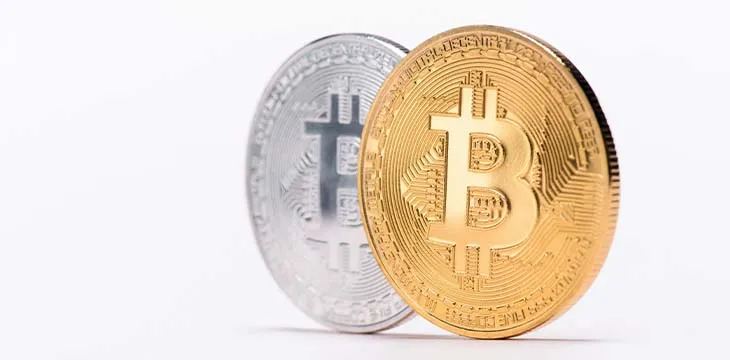|
Getting your Trinity Audio player ready...
|
This post originally appeared on ZeMing M. Gao’s website, and we republished with permission from the author. Read the full piece here.
Question: Bitcoin projects seem to all create a new currency out of thin air and inject it into the economy to dilute money, so how do you justify doing it, whether it is BTC or BSV?
It is a familiar and intuitive argument, but arises from a misunderstanding caused by people’s familiarity with fiat money and confuse it with market-based money (such as asset-based money and commodity money). See Money & Currency.
When new units of a fiat money are created and injected into an economy, it is always inflationary because its direct result is a dilution of the value of the existing money. The reason is very simple. The new units of money carry zero economic value in themselves but are artificially and forcefully made to be of the same face value of the existing money, causing a dilution of the value of the existing money.
In contrast, when a market-based money such as a commodity money is introduced, the thing (commodity) that is regarded as money carries, by definition, intrinsic market value in itself which equals to the money value it now represents (or it would not be recognized as market-based money), and therefore does not dilute the existing value of money. At the same time, if the new money is being transmitted and circulated in a new form of currency (i.e., a technology), it may create new value due to the better efficiency of the new currency.
This is analogous to what happens to equity shares of a company. If a company simply prints new shares without receiving new capital in exchange, the result is a straight dilution of the existing share value. However, if the company issues new shares in exchange for new capital at the fair market value of the shares, the result is very different. Although the share base is diluted, the unit value of the existing shares (value per share) is not diluted, because the total value of the shares is also increased in proportion.
Furthermore, if the new capital is deployed efficiently with a good business plan and good execution, the unit value of the shares can be further increased.
But on other hand, the market may be making irrational decisions due to mass confusion or deceptive schemes, thus giving unjustified value to a so-called market-based money, thus diluting the value of the existing money. At the same time, the new money as a currency maybe even less efficient than the existing currency but only accepted by an irrational market for its oddity or a certain lure of narrative, creating a further negative impact on the value of the existing money.
Therefore, it depends.
A further analysis
The basis to analyze this question is to firstly acknowledge that the economic justification of a thing in this man-made world is based on its net utility, a net result of its input and output. And this requires deep economic analyses, way beyond making an overarching philosophical argument.
Secondly, one should be careful in characterizing assets as money or currency in order to reach a categorical conclusion. An asset that has intrinsic utility is chiefly a good, or if the good is standardized, a commodity, and its existence justified by the very utility itself. That the asset happens to be used in the same way as a currency does not change this conclusion.
It is for this reason that the moral sentiments of BTC or BSV (or any other digital currencies for that matter) must be closely measured according to its actual utility, not mere narratives, propagandas or aspirations.
Therefore, for a technology that creates a new digital currency and adds it to circulation, the ultimate estimates one needs to be doing are:
(1) does the new currency increase the total amount of money circulating in the world, and if yes by how much? (Don’t assume that just because it’s a new currency, it automatically and unavoidably increases the amount of money, because a more efficient currency might end up reducing the amount of money needed in circulation. For the difference between money and currency, see Money & Currency)
(2) how much new value does the new system bring to the overall economy?
(3) the net contribution – is the difference between the effects of the above (2) and (1) a positive or negative?
(4) are the new wealth and its distribution justified by the net contribution?
I can certainly argue today the modern monetary system and financial system are overall unjustified, having gone far beyond its utility and become a machine to enrich people who have control or a preferable position in the system.
It is also clear that at its current stage, all digital currency assets are purely speculative and have not provided even a small fraction of the justification for their existence and valuations based on economic utility.
BSV is no exception when judged by the present level of utilization.
However, BSV stands out.
First, generating over 50% of the total transaction volume of the entire Bitcoin world, but receiving a mere 0.1% of the total digital currency market capitalization, BSV is far more fairly positioned than the rest in terms of its economic justification and moral sentiments. The case is even stronger when you consider the fact that a vast majority of the BSV transactions are actual user applications, not pure speculative trading as is the case with most others. Judging by the transaction volume (for the sake of lacking any other real fundamentals for valuation), if BSV is close to being fairly valued, then the rest of the digital currency assets are overvalued by 500 times on average.
Second, Bitcoin as originally created and continued on BSV blockchain is a digital commodity that is meant to be utilized to facilitate data and value transactions. It can be used for many functions which include but are not limited to payments and trading, thus functioning as a currency (i.e., a technology for transfer money), but such is a derivative function of its commodity property. BSV thus finds its economic and moral justifications in the market itself. (See for example, BSV is a value-creating system; and Bitcoin is land on which the digital economy is being built.)
But despite this outstanding contrast, even BSV cannot justify its valuation based on the traditional economic fundamentals, say nothing of the rest.
That is, even BSV’s value proposition has not been completely proven yet. It is still largely theoretical.
But there’s a difference between a theory and pure speculation, just as there is a difference between physics and astrology. Comparing BSV with other digital assets, the real difference is in the potential utility (value creation) according to each system’s fundamental design. I support BSV because I see its architecture to be fundamentally sound, and emerging applications extremely promising. It is in fact the blockchain system that I think has the highest potential to justify its existence and valuation in many multiples in the future.
In a more foreseeable future, if its transaction volume increases by a 100x from its current level, BSV will be able to easily justify its present valuation even using a traditional enterprise valuation method based on economic fundamentals. From there, the transaction volume may go on to further increase by thousands if not millions of times, but how much more valuable BSV and its ecosystem may become is a question left for the future.
Let the market decide
According to economists like Mises, a thing becomes money because it is easily tradable and has value in the first place, and if it becomes more valuable while serving as money, it is only because the market has agreed that the thing has become more valuable and thus can represent more units of value as money.
If something has become money without a market agreement (think fiat money), it needs justification from somewhere else outside of the market.
And if the thing that has been accepted by the market as a form of money further becomes more valuable simply because it is treated by market speculations as something appreciating in value without any increase in its utility, such market appreciation would lack moral justification, and its market justification may be only temporary, because in both cases the thing only extracts value from the economy.
What if the market is immoral?
But the question one may want to ask is: can the market ultimately agree to something that is immoral?
Unfortunately, the answer is yes. This is the stressful reality of this existing world that we live in. Market itself is amoral. That is why those who advocate a completely free market economy without government interference are wrong. They are anarcho-capitalists. I am a believer in market economy, but against anarcho-capitalism. At a certain point, the law needs to intercede.
The amoral market will give something even like BTC a use case, which is a black money market. Whether it is legal, moral or not, it is a market worth hundreds of billions of dollars and therefore is a use case. (See more: A Future with BTC and BSV.)
On the other hand, we should not underestimate the self-healing power of the market.
The very notion that something like BTC whose extraction-economy is strikingly immoral may succeed simply due to the stupidity of the market, is a depressing thought. But I believe the market will eventually make the right decision, by adopting a better system that is not only more efficient but also more moral. It is not guaranteed, but highly likely, because colossal errors happen in the market choices only when a better option is not available. This is not the case with BTC, because there is BSV.
For individuals, categorically deciding against a new technology simply because it creates a new currency (which is essentially a value transfer method) is not a good philosophy, nor is rejecting a commodity simply because it may be accepted by the market as money. One must study the benefit and risk first and make a personal decision. The society needs government, but it needs people making informed and wise decisions even more.
Value creation and open complex system
Another thing that is extremely important is that many people, even career economists, tend to make a mistake that Karl Marx made. Marx had a brilliant theory but made an erroneous assumption that the human economic system is both a closed system and a simple system with straight causality (versus a complex system with rich reflexivity). As a result, Marxism views the human economic system largely as a zero-sum system, with only one exception, which is the labor creates surplus values for the capital. This error of Marxism is critical and fatal.
Many, especially those who are communism/socialism-leaning, make the same mistake as Marx did. Under Marxism, the emphasis is on distribution not creation. As a result, something that appears to add a new currency into circulation would be an immediate suspect of evil.
Marx failed to understand that the human economic system is an open system in which new value is created due to external inputs, not merely by simple labor which is a part of a closed system. The vast majority of the surplus value creation in a modern economy is not by simple labor (i.e., the mere human effort and time), but through knowledge. “Knowledge” is developed through human minds by inspiration, which is fundamentally external, thus makes the system essentially open. Besides, both the creation of knowledge and the application of knowledge are part of a complex system with rich reflexivity of many internal and external feedbacks. A true open and complex system is not a zero-sum but always has room for new value to be created. Such a system is not mechanically deterministic (see why AI will never replace human).
The surplus value is not limited to capital only, but also derives from human ingenuity. And the new value is not only in producing things, but also in providing necessary services, even just activities.
In the case of Bitcoin, value transfer is a fundamental and necessary service and activity in human society. Any technology that makes value transfer more efficient creates new value to the economy.
The question of wealth creation and distribution
But when the technology creates a new currency, and the currency enriches early adopters, a natural question to be asked is whether the new wealth is overall justified. This circles back to the original question above. Again, it is a question of quantitative economics, not a categorical philosophy.
The early developers and adopters of value transfer technologies such as BSV are comparable to early investors in a traditional enterprise. If they’ve created wealth, it is not necessarily that they extracted value from others. This is the case even if a new currency has been created and placed into the market.
First, it is not created out of thin air, but created through knowledge and technology, and further backed up by actual computation. Technology itself is an accumulation of the past knowledge, so ultimately it is all knowledge. As to computation, it is a support of value, not because computation as a cost in itself is justification for the value, but that the deployment of computation is a result of market feedback based on its usefulness or perceived usefulness. The latter is quite evidently seen in Bitcoin mining in which the level of computation is a result of market competition for the perceived value of the asset. Whether the perceived value is justified or not is a different inquiry.
Second, when it is created, no one could force the market to accept a nonzero price. It is up to the market.
Third, the system including its function of a currency may have created more value to the overall economy than the face value acquired by the currency; and this is an inquiry, rather than a presumption, that needs to be made for the matter of moral sentiments.
In the case of Bitcoin, concerning the above question of “whether the new wealth and its distribution are justified by the net contribution,” this inquiry alone should allow one to see a stark contrast between BTC and BSV. If BTC eventually succeeds, it will result in the most unjustified wealth redistribution in human history not only because the distribution itself is extremely concentrated on a small number of people, but more importantly because they are held by people who did not make other people’s lives better.
And at the same time, as you start to consider these questions, you see that the market has a very interesting way to prove something’s worth through trials of fire:
The extreme depression of BSV price will eventually show itself as the market’s disguised way to prove BSV’s moral worth through an adversarial trial that prolongs the open window for early adopters to exit and for new adapters to enter at very low-price points. This makes the early adopters suffer and shakes out people who don’t really believe in the value and the future.
But the true believers remain. The more suffering they stand, the more justification there is for their eventual winning position. This is an effective way to create a more morally justifiable wealth distribution. An underlying principle is that no winning is guaranteed at any point of time. The people who persist could end up losing everything if what they have believed in turns out a failure. That is, there’s always a potential for a disaster.
But the potential for a disaster is not a bug, but a feature, because the reality even the whole universe has its own built-in objective moral sentiments to judge the subjective ones of human being.
Summary
One should not have a wholesale objection against making any investment that involves creating a new currency, but should nonetheless be discriminative in terms of the value proposition of such investments, not only financially, but also morally.
These are questions that cannot be answered easily. It would require books to be written, and books have been written, to discuss such topics, and still the majority of people may end up reaching a wrong conclusion or not caring about it at all.
But the world goes on regardless (until it doesn’t – in this regard, something can be learned from the Book of Revelation), and everyone is ultimately responsible for his/her decisions and actions.
This article was lightly edited for clarity.
Watch: CoinGeek New York Dr. Craig Wrights keynote speech, Set in Stone: What is a Commodity?
https://www.youtube.com/watch?v=xxbCgMdk5Q8

 08-08-2025
08-08-2025 





